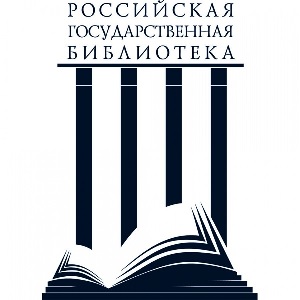ИЗУЧЕНИЕ ОПЫТА ПРОГНОЗИРОВАНИЯ ТУРИСТСКИХ ПОТОКОВ С ПРИМЕНЕНИЕМ АЛГОРИТМОВ МАШИННОГО ОБУЧЕНИЯ
Аннотация
В статье для изучения российского и международного опыта прогнозирования туристских потоков с применением алгоритмов машинного обучения была проанализирована поисковая выдача трех крупнейших баз цитирования научной литературы - ScienceDirect (полнотекстовая база данных: доступ к электронным журналам издательства Elsevier), Mendeley (интегрированная с научными платформами программа для управления библиографической информацией, позволяющая хранить и просматривать исследовательские работы) и Elibrary (научная электронная библиотека). В статье отмечено, что в базах ScienceDirect и Mendeley, в основном, обрабатывают научные публикации в англоязычных изданиях, в то время как основной массив записей Elibrary, напротив, составляют публикации на русском языке. В статье указано, что на фоне большого количества публикаций в международных научных изданиях, российский опыт использования машинного обучения для прогнозирования туристических потоков выглядит очень скромно. Одной из основных причин, вероятно, является ограниченный доступ к статистическим данным, необходимым для построения модели машинного обучения. В связи с этим, исследовательская активность в этой сфере концентрируется не в научных кругах, а в корпоративных - внутри специализированных подразделений в компаниях банковского или информационного-телекоммуникационного сектора, владеющих данными о геолокации пользователей, или непосредственно в объектах туристической отрасли. Так, аналитика передвижения населения, в том числе с туристическими целями, ведется в Яндекс, Mail.ru (Profi.Travel), МТС, Билайне, Мегафоне, Сбербанке. Исследования, в основном, носят коммерческий характер и потому отсутствуют в открытом доступе.
Литература
Li X. Review of tourism forecasting research with internet data. Tour. Manag. 2021. Vol. 83. P. 104245.
Jain P.K., Pamula R., Srivastava G. A systematic literature review on machine learning applications for consumer sentiment analysis using online reviews. Comput. Sci. Rev. 2021. Vol. 41. Р. 100413.
Hillel T. A systematic review of machine learning classification methodologies for modelling passenger mode choice. J. Choice Model. 2021. Vol. 38. Р. 100221
Santamaria-Granados L., Mendoza-Moreno J.F., Ramirez-Gonzalez G. Tourist recommender systems based on emotion recognition—a scientometric review. Futur. Internet. 2021. Vol. 13. N 1.
Kirilenko A.P. Automated Sentiment Analysis in Tourism: Comparison of Approaches. J. Travel Res. 2018. Vol. 57. N 8.
Parvez M.O. Use of machine learning technology for tourist and organizational services: high-tech innovation in the hospitality industry. J. Tour. Futur. 2020.
Lanina K.S., Lanin M.A. Machine learning technologies as one of the new vectors of development of hotel enterprises. Materials of the III All-Russia scientific and practical conference «Modern problems and prospects for the development of tourism and the service sector in the context of globalization» Vladimir: ATLAS. 2020. P. 227–231. (in Russian).
Vedernikova A.Y., Nianina T.A., Gadasina L.V. European tourism during the coronavirus pandemic. Materials of the III International scientific and practical conference «Consequences and causes of the coronavirus pandemic for technological and socio-economic development of society». Yaroslavl: Yaroslavl State Technical University. 2020. P.504-510. (in Russian).
Demenev A. Technological trends in digital transformation of business tourism industry in the hotel segment. Materials of the International scientific and practical conference «Development and practice of implementing strategic management project solutions for the development of hotel and tourism business». Moscow: Rusains. 2019. P.176-181. (in Russian).
Mikhailov S.A. Intelligent system of tourist assistance: service-oriented architecture and implementation. Scientific and Technical Bulletin of Information Technologies, Mechanics and Optics. 2019. Vol. 19, N3. P. 499-507. (in Russian).
Imametdinova M.R. Big data technologies - the basis of digitalization of logistics services in the tourism industry. Materials of the VIII International scientific and practical conference «Management in modern systems». Chelyabinsk: South Ural Technological University. 2018. P. 268-276. (in Russian).
Shpyrnia O., Koreneva M.V. New technologies of tourist services market development. Scientific Bulletin of the Southern Institute of Management. 2019. N 4(28). P. 113-116. (in Russian).
Pershina E.S., Daragan S.V. From big data to advanced analytics in the tourism industry. Scientific Bulletin MSITI. 2018. N 2(52). P. 60–69. (in Russian).
Scimago Journal and Country Rank. https://www.scimagojr.com/journalsearch.php?q=30718&tip=sid&clean=0, https://www.scimagojr.com/journalsearch.php?q=16547&tip=sid&clean=0.
Xie G., Qian Y., Wang S. Forecasting Chinese cruise tourism demand with big data: An optimized machine learning approach. Tour. Manag. 2021. Vol. 82. Р. 104208.
Lingyu T., Jun W., Chunyu Z. Mode decomposition method integrating mode reconstruction, feature extraction, and ELM for tourist arrival forecasting. Chaos, Solitons & Fractals. 2021. Vol. 143. Р. 110423.
Yuan F.-C. Intelligent forecasting of inbound tourist arrivals by social networking analysis. Phys. A Stat. Mech. its Appl. 2020. Vol. 558. Р. 124944.
Kulshrestha A., Krishnaswamy V., Sharma M. Bayesian BILSTM approach for tourism demand forecasting. Ann. Tour. Res. 2020. Vol. 83. Р. 102925.
Yao Y., Cao Y. A Neural network enhanced hidden Markov model for tourism demand forecasting. Appl. Soft Comput. 2020. Vol. 94. Р. 106465.
Yao Y. A paired neural network model for tourist arrival forecasting. Expert Syst. Appl. 2018. Vol. 114.
Livieris I.E. Weight-constrained neural networks in forecasting tourist volumes: A case study. Electron. 2019. Vol. 8. N 9.
Jiao X., Li G., Chen J.L. Forecasting international tourism demand: a local spatiotemporal model. Ann. Tour. Res. 2020. Vol. 83. Р. 102937
Gunter U., Zekan B. Forecasting air passenger numbers with a GVAR model. Ann. Tour. Res. 2021. Vol. 89. Р. 103252.
Perles-Ribes J.F. Competitiveness and overtourism: A proposal for an early warning system in spanish urban destinations. Eur. J. Tour. Res. 2021. Vol. 27.
Perles-Ribes J.F. Machine learning techniques as a tool for predicting overtourism: The case of Spain. Int. J. Tour. Res. 2020. Vol. 22. N 6.
Jain P.K., Pamula R., Srivastava G. A systematic literature review on machine learning applications for consumer sentiment analysis using online reviews. Comput. Sci. Rev. 2021. Vol. 41. Р. 100413.
Kirilenko A.P. Automated Sentiment Analysis in Tourism: Comparison of Approaches. J. Travel Res. 2018. Vol. 57. Р. 8.
Giglio S. Using social media to identify tourism attractiveness in six Italian cities. Tour. Manag. 2019. Vol. 72.
Wang M. Applying Internet information technology combined with deep learning to tourism collaborative recommendation system. PLoS One. 2020. Vol. 15. Р. 12 December.
Nilashi M. Analysis of Travellers’ Online Reviews in Social Networking Sites Using Fuzzy Logic Approach. Int. J. Fuzzy Syst. 2019. Vol. 21. Р. 5.
Penagos-Londoño G.I. A machine learning approach to segmentation of tourists based on perceived destination sustainability and trustworthiness. J. Destin. Mark. Manag. 2021. Vol. 19.
Parvez M.O. Use of machine learning technology for tourist and organizational services: high-tech innovation in the hospitality industry. J. Tour. Futur. 2020.
Gunter U., Zekan B. Forecasting air passenger numbers with a GVAR model. Ann. Tour. Res. 2021. Vol. 89. Р. 103252.
Bi J.-W., Li H., Fan Z.-P. Tourism demand forecasting with time series imaging: A deep learning model. Ann. Tour. Res. 2021. Vol. 90. Р. 103255.
Guizzardi A. Big data from dynamic pricing: A smart approach to tourism demand forecasting. Int. J. Forecast. 2021. Vol. 37, N 3. Р. 1049–1060.
Astrakhantseva I., Astrakhantsev R. Cryptocurrency as new financial and legal instrument: defining cryptoassets in property law. SHS Web of Conferences: III International on New Industrialization and Digitalization (NID 2020). Ekaterinburg: EDP Sciences. 2021. P. 02002. DOI: 10.1051/shsconf/20219302002.












